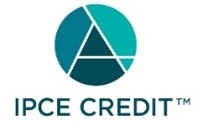March 14, 2024: 14th Olga Danieli-Fava Lecture in Psychotherapy: Positive stress, toxic stress, and existential stress, in the Anthropocene (Northern)
We now have an abundance of existential stress to deal with from the climate crisis and other global threats.
This talk will discuss different types of stress, and how they impact physical and cellular health.
We will reflect on new skills for living well despite these new lifelong circumstances. Climate change is impacting mental health particularly for youth, and we willdiscuss a model of ‘distress to activation’ for helping young adults move from hopelessness to amore adaptive mindset and meaningful path.
Target Audience
This program is intended for: Psychiatrists, Psychologists, Fellows, Residents, Interns and Nurses
Learning Objectives
Upon completion of the activity, participants will be able to:
1.Identify differences between toxic stress and hormetic stress, providing examples of each type, and how they may impact biological aging.
2.Explain how lifestyle daily behaviors may affect aspects of biological aging (inflammation and telomeres)
3.Describe three different ways to reduce daily perceived stress and the different proposedmechanism
SPEAKER(S)
Elissa Epel, Phd
Professor of in the Department of Psychiatry and Behavioral Science at University of California
Elissa Epel, PhD
Professor in the Department of Psychiatry & Behavioral Sciences, at University o
Elissa Epel, Ph.D, is an international expert on stress, well being, and optimal aging and a best-selling author.She is a Professor in the Department of Psychiatry & Behavioral Sciences, atUniversity of California, San Francisco, where she is Vice Chair of Psychology and directs theAging Metabolism Emotions Center (amecenter.ucsf.edu) and the new Climate Mental HealthCouncil of the UC wide Center for Climate, Health and Equity. She studies the psychological,behavioral and social factors that impact cellular aging and mental health, and is also focusing onclimate distress and wellness.She co-wrote the New York Times best seller “The TelomereEffect” with Elizabeth Blackburn, and thenew “Stress Prescription,” an independent bookstorebest seller. Her publications and science-based meditation retreats are available onwww.elissaepel.com. She is a member of the National Academy of Medicine and has beennamed a highly cited researcher globally (top .1% of researchers for publication impact).
Available Credit
- 1.00 AMA PRA Category 1 Credit™
This activity has been planned and implemented in accordance with the accreditation requirements and policies of the Accreditation Council for Continuing Medical Education (ACCME) through the joint providership of IHP and Massachusetts General Hospital. IHP is accredited by the ACCME to provide continuing medical education for physicians.
IHP designates this Enduring activity for a maximum of 1.00 AMA PRA Category 1 Credit™. Physicians should only claim credit commensurate with the extent of their participation in the activity.
- 1.00 Nursing Contact Hours
Massachusetts General Laws, Chapter 13, sections 13, 14, 14A, 15 and 15D and Chapter 112, sections 74 through 81C authorize the Board of Registration in Nursing to regulate nursing practice and education.
This program meets the requirements of the Massachusetts Board of Registration in Nursing (244 CMR 5.00) for 1.00 contact hours of nursing continuing education credit. Advance practice nurses, please note: Educational activities which meet the requirements of the ACCME (such as this activity) count towards 50% of the nursing requirement for ANCC accreditation.
- 1.00 Participation
This course allows other providers to claim a Participation Certificate upon successful completion of this course.
Participation Certificates will specify the title, location, type of activity, date of activity, and number of AMA PRA Category 1 Credit™ associated with the activity. Providers should check with their regulatory agencies to determine ways in which AMA PRA Category 1 Credit™ may or may not fulfill continuing education requirements. Providers should also consider saving copies of brochures, agenda, and other supporting documents.
- 1.00 Psychologists CE Credit
Continuing Education (CE) credits for psychologists are provided through the co-sponsorship of the American Psychological Association (APA) Office of Continuing Education in Psychology (CEP). The APA CEP Office maintains responsibility for the content of the programs. MGH Institute of Health Professions designates this activity for 1.00 CE credit.
Accreditation
In support of improving patient care, MGH Institute of Health Professions is jointly accredited by the Accreditation Council for Continuing Medical Education (ACCME), the Accreditation Council for Pharmacy Education (ACPE), and the American Nurses Credentialing Center (ANCC) to provide continuing education for the healthcare team.
1.00 Physicians
MGH Institute of Health Professions designates this live activity for a maximum of 1.00 AMA PRA Category 1 Credits ™. Physicians should claim only credit commensurate with the extent of their participation in this activity.
1.00 Nursing Contact Hours
MGH Institute of Health Professions designates this activity for 1.00 contact hours for nurses.
1.00 Social Workers
 As a Jointly Accredited Organization, MGH Institute of Health Professions is approved to offer social work continuing education by the Association of Social Work Boards (ASWB) Approved Continuing Education (ACE) program. Organizations, not individual courses, are approved under this program. State and provincial regulatory boards have the final authority to determine whether an individual course may be accepted for continuing education credit. MGH Institute of Health Professions maintains responsibility for this course. Social workers completing this course receive 1.00 clock hours for continuing education credits.
As a Jointly Accredited Organization, MGH Institute of Health Professions is approved to offer social work continuing education by the Association of Social Work Boards (ASWB) Approved Continuing Education (ACE) program. Organizations, not individual courses, are approved under this program. State and provincial regulatory boards have the final authority to determine whether an individual course may be accepted for continuing education credit. MGH Institute of Health Professions maintains responsibility for this course. Social workers completing this course receive 1.00 clock hours for continuing education credits.
1.00 IPCE Credit
 This activity was planned by and for the healthcare team, and learners will receive 1.00 Interprofessional Continuing Education (IPCE) credit for learning and change.
This activity was planned by and for the healthcare team, and learners will receive 1.00 Interprofessional Continuing Education (IPCE) credit for learning and change.

 Facebook
Facebook X
X LinkedIn
LinkedIn Forward
Forward